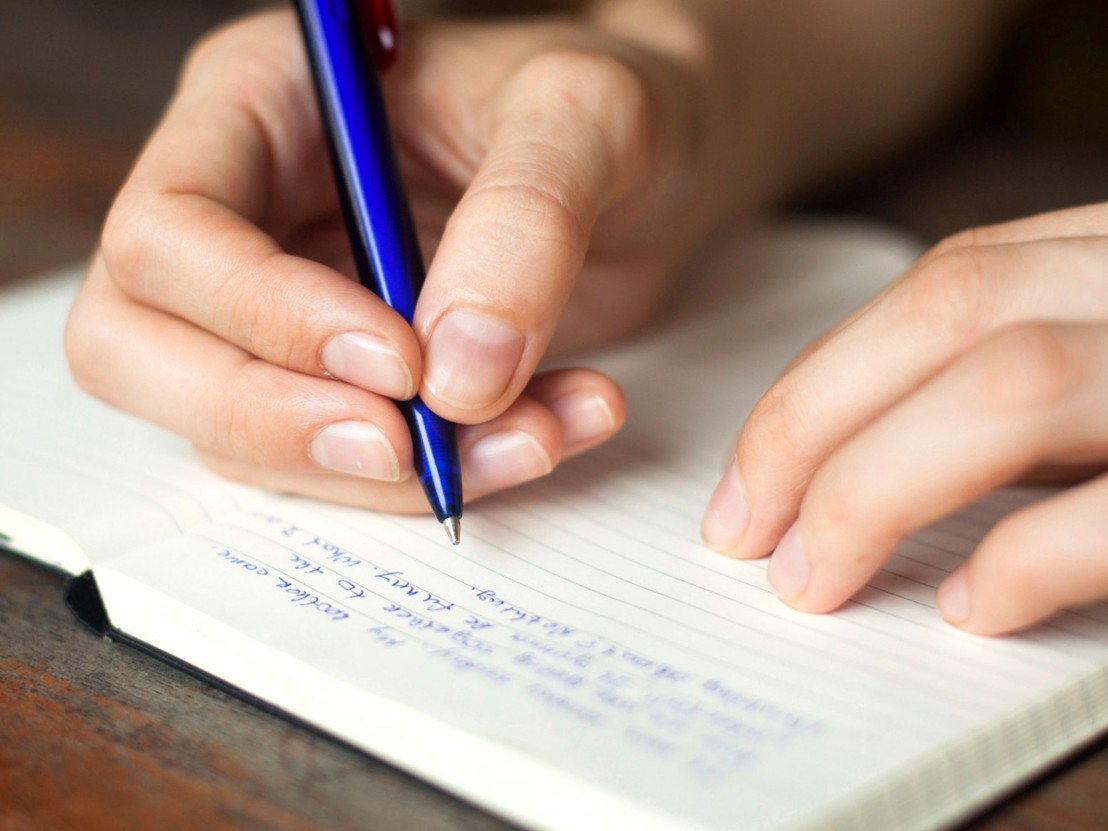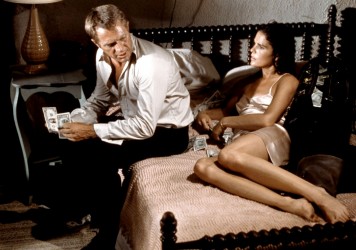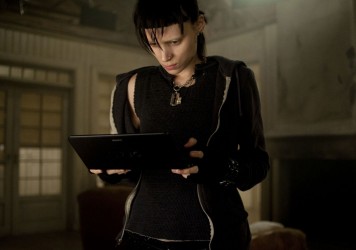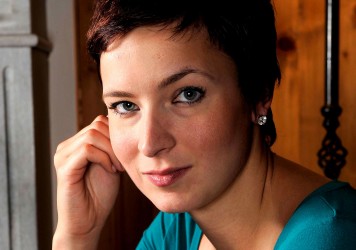
Over the past few weeks we’ve been counting down 100 of the best movies directed by women, as inspired by our latest cover film, Mia Hansen-Løve’s extraordinary Eden. It’s been something of a bittersweet exercise. While the conversation around gender equality within the film industry has taken on greater urgency thanks to high-profile crusaders such as Patricia Arquette, Meryl Streep, Emma Thompson and others, there’s no use ignoring the damning evidence that’s staring us in the face.
In our male-centric reality, a chauvinistic shadow continues to be cast over contemporary cinema. When Hollywood’s biggest male stars can still expect to take home a fatter pay cheque than their female counterparts, as pointed out by the Guardian’s Catherine Shoard in an excellent piece yesterday, it’s clear there’s still a lot of work to be done. Not least where female screenwriters are concerned, who according to the Centre for Women in Film and Television are still struggling against the tide, having accounted for just 11 per cent of the writing credits on the top 250 grossing films at the US box office in 2014.
During the same 12-month period, female protagonists represented a mere 12 per cent of lead roles in the top 100 releases. Such depressing statistics amplify the call for change, for as long as female creatives are subject to tedious misconceptions and archaic practices their voices will continue to be muffled. Diversity is surely key to ensuring the long-term health of the industry, yet this realisation has so far been slow to sink in. A wake up call came courtesy of the BFI, who recently published a report stating that only 25 of 187 screenwriters on films produced and released in the UK in 2012 were women.
There is cause for optimism. Over the past three years, there has been an increase in representation within the UK’s independent market, with women comprising 37 per cent of the top 20 releases. Moreover, in 2012 female screenwriters had greater box office success versus men in the animation, horror, music, romance, thriller and family genres. Some established male directors have shown the way, too, with the likes of Steven Spielberg, Peter Jackson and Matthew Vaughn regularly collaborating with female screenwriters. Audiences want to see films centred around strong women, yet they remain few and far between.
By whatever means, we need to find a way to make sure that female voices continue to be heard on the public stage. It’s time we ventured back to the source – the script. LWLies spoke to four female representatives from the film industry to gauge their thoughts on gender equality in an attempt to iron out the creases in cinema’s age-old battle of the sexes.
Editor-turned-screenwriter Olivia Hetreed achieved mainstream recognition in 2003 on the back of her BAFTA-nominated script for Girl with a Pearl Earring. Her other credits include Andrea Arnold’s Wuthering Heights and the forthcoming Altamira, directed by Hugh Hudson. Now the President of the Writer’s Guild in Britain, Olivia offers a perspective from both the commissioning and creative sides of the industry.
“The lack of female screenwriters is problematic. First of all, screenwriting is a very invisible profession, which is a key issue, and I think it would help if there was a general awareness of what we do altogether. I think the lack of female voices is a result of historical bias – there are issues surrounding the way you have to be as a screenwriter; it’s not enough to write well. You also have to be able to present yourself in the room, to persuade people of your worldview, to defend the decisions you’ve made but accept graciously that you’ll have to change things. I often mentor female screenwriters, and I’ve noticed a certain diffidence to them. That concerns me.
“We also have to contend with confirmation bias, and the idea of who a screenwriter is – or should be. There is certainly a misconception that women can only write female-centric narratives, and one of the probable reasons that there aren’t many female screenwriters is because there aren’t many female central characters. Although, this is another important reason for having female screenwriters – we might finally have more women on screen as well.
“Female screenwriters bring the unique qualities that women bring to any kind of writing; a different point of view, an ability to question the status quo, which is largely still determined by the male voice and the male gaze, and to look at the world a different way. That doesn’t necessarily mean that the stories are all about women, or women’s issues – although I think all are important things and underrepresented in current cinema – but actually, women have a different perspective on war games and adventure stories, and so on. I think it’s a shame to miss out on what half the world thinks about that sort of thing.”
Newcomer Kaitlin McLaughlin stormed the festival circuit with her debut film, Pocha (aka Manifest Destiny), which won the Special Jury Prize at the 2015 Los Angeles Film festival. She also co-directed the film with her creative partner, Michael Dwyer.
“We have such a false perception of scarcity when it comes to the supply of female writers and directors. There are boatloads of talented women ready to make extraordinary and profitable films. Hire us! I think there exist some false notions about a gendered marketplace and that women aren’t capable of delivering films that will be successful with wide audiences. It’s not only untrue; it’s shameful that we are still having these discussions in 2015.
“Male directors definitely change the dynamics of a script. For whatever reason, there seems to be an overwhelming impulse to make female characters reactive and more passive, on levels large and small. I think it’s important to remember that even small directorial choices have an impact. That being said, I think we all carry the limitations of our perspective and everyone shares a collective responsibility to push ourselves into different, less familiar territories.
“The abysmal statistics on women and minorities working in this industry have been widely publicised. Rather than continuing to discuss the widespread failings of the current system, it’s time to focus our energies on how to disrupt it.”
Esteemed screenwriter Moira Buffini’s credits include Tamara Drewe, Byzantium and Cary Fukunaga’s 2011 adaptation of Jane Eyre, starring Michael Fassbender and Mia Wasikowska. Buffini’s female characters are prominent and strong, while her resilient nature has secured her a place at the front of the pack.
“When I first came into the industry, I was astonished by how blokey it was. I look around and there are still only a handful of women doing the same job as me. But rather than dwelling on this, I think it’s more useful to look to the future and how we can continue to change it.
“Screenwriting and creative writing courses are full of young women. Women are finding increasing success as playwrights and in TV, and this huge swell of talent must be encouraged into film. If you are a woman interested in being a screenwriter, be ambitious with your stories, develop armour and never give up. I refuse to be restricted or stereotyped because of my gender. I know there are still many all-male wish lists for certain jobs, especially those that are political or action-based. I would like to see them opened up; executives thinking outside the box; taking a chance on female writers bringing something really fresh to tired old stories in tired genres.
“Female writers certainly transcend their gender; we write three-dimensional, complex male characters of all ages and from all walks of life. Perhaps the added bonus of having a female writer is that we also write three-dimensional, complex female characters of all ages and from all walks of life. We don’t start a character description of a female character with how pretty she is. I am interested in all human experience. But so far, I have chosen female-centric stories to redress the balance. Not only are there fewer female screenwriters, there are fewer challenging roles for actresses and fewer satisfying stories for women and girls. This is a positive, political choice – not because it is the only kind of work I am capable of.
“We need to recognise more female talent for diversity of story and fresh vision; simple as that. The separation of male and female markets isn’t the answer either. Epic stories that appeal to both genders are pretty thin on the ground and when they appear they have lasting success. Women must have a bigger slice of the cake, both as characters in stories and as a powerful voice in the industry that’s telling them.”
Caroline Norbury is the Chief Executive Officer of Creative England, an initiative dedicated to supporting and investing in creative industries and projects. She has extensive knowledge of the realms of film and media, having worked as an independent producer, director and commissioning executive in the past.
“I think there may be a perception that backing female filmmakers is ‘risky’, because of the idea that they, 1) don’t do genre and 2) won’t be making stuff to appeal to a mainstream market. This is nonsense. The fact is that audiences are not young men looking for car movies; women have the spending power and the means to consume entertainment that offers a perspective they can relate to and we need female screenwriters to tell these stories for the audiences that want them.
“There is a general, though in my eyes misconstrued, notion that female writers have a different development language to men. Some believe that women are more focused on character, emotion and empathy when it comes to screenwriting and that they neglect elements like structure, plot development or straightforward genre. But I believe women screenwriters are as big on characters as they are on structure and genre, and recent years have seen UK female screenwriters outperforming men when it comes to genre, so this is most likely a misconception.
“I would, however, like to see more women writing comedy for film. We have fantastic female TV comedy writers in the UK like Sally Phillips, Julia Davis and Fay Russling, but it would be great to see this talent translate to film. In the US they have personalities like Lena Dunham and Tina Fey who transcend the television/film boarder, so it would be wonderful to see that effect on this side of the Atlantic. Creative England’s recent iShort + ‘Funny Girls’ programme aimed to scout female comedic talent from the UK and the applications just flooded in, so they are out there! Plus, the shorts that the selected women produced are a testament to what female writers are capable of.
“Truly the most unique qualities any writer – male or female – can bring is their own individual perspective, their own voice and their own vision to their production. Creative England has invested in a host of great women writers: Hope Dickson Leach (The Levelling), Alice Birch (Lady Macbeth) Rachel Tunnard (Emotional Fusebox, How To Live Yours), Esther May Campbell (Light Years) are all superb examples of having an original voice and perspective.
“We try to encourage female filmmakers to join relevant networks. Our talent development modules, for example, allow regional filmmakers to come together to support one another and collaborate to widen their networks. The evidence that female writers excel when working with female directors or producers could point to there being more of an understanding between fellow female filmmakers that may be lacking elsewhere. Ultimately, we definitely need more female role models in the UK across in all areas of the filmmaking industry and we need to put more effort into celebrating the ones we already have.”
With initiatives like She Writes, Women in Film and other TV mentoring schemes, the International Women’s Writing Guild, Meryl Streep’s new Writer’s Lab and Creative England, we can look forward to seeing better representations of women on our screens. For now, it’s imperative that we continue championing emerging talent and aspiring newcomers in the hope that one day women will enjoy an even creative split across the film industry.
With all that in mind, we’ve devised a directory of the 20 best female screenwriters working today. The challenge we faced when sourcing these names is testament to the cause, but we’re confident we’ll be able to keep adding to this list over the coming years.
What do you think should be done to support female screenwriters? Let us know @LWLies
Published 30 Jul 2015

Is it possible for women to love movies which promote a regressive, misogynistic worldview?

By Simran Hans
A look beyond the dominant male characters that inhabit the Gone Girl director’s cinema.

These talented women are fighting to give the film industry a feminine voice.